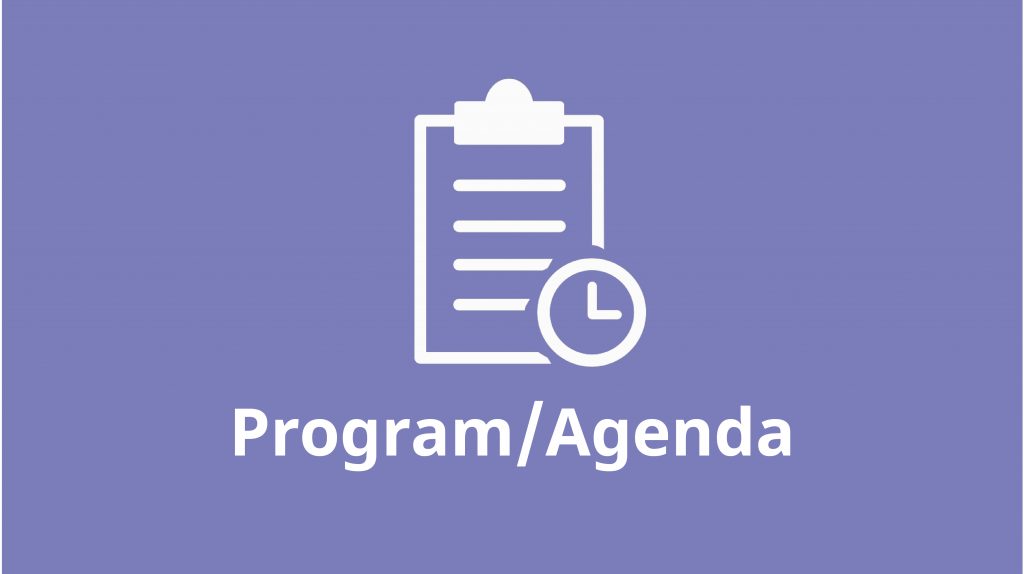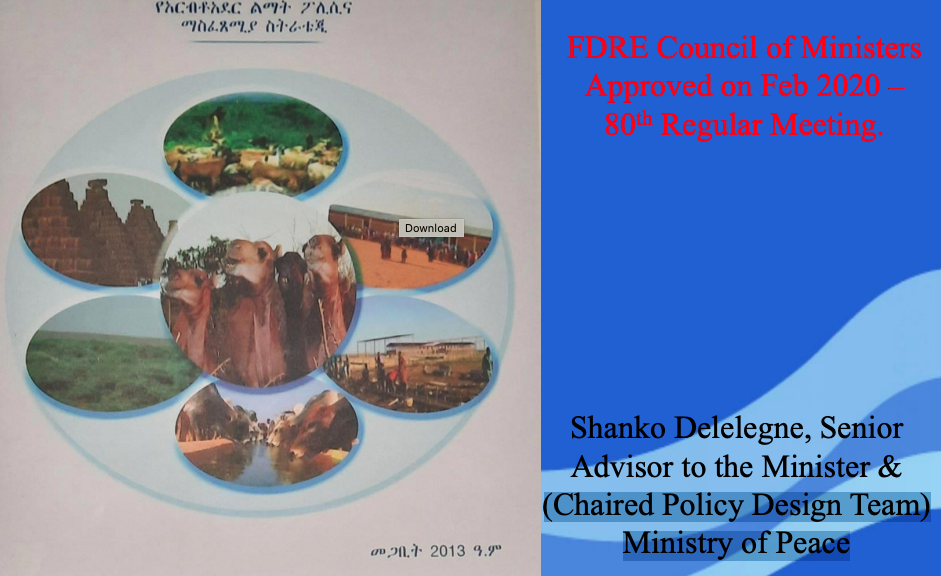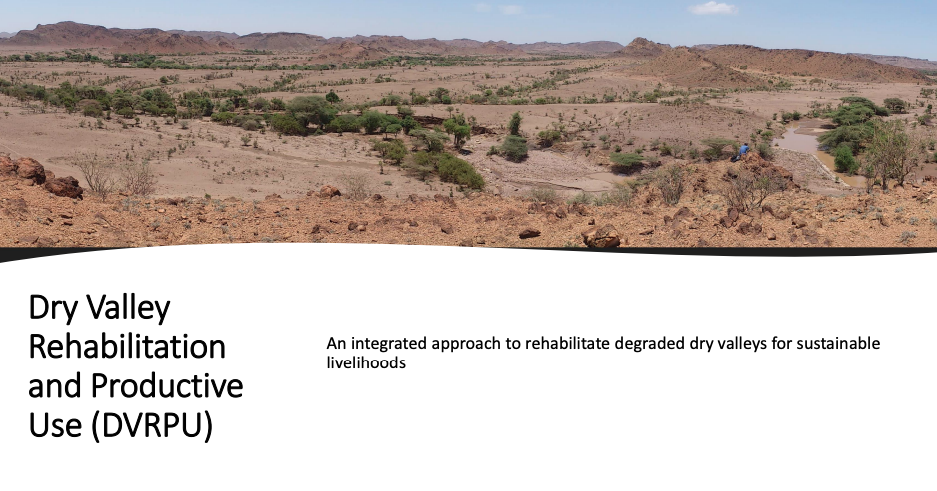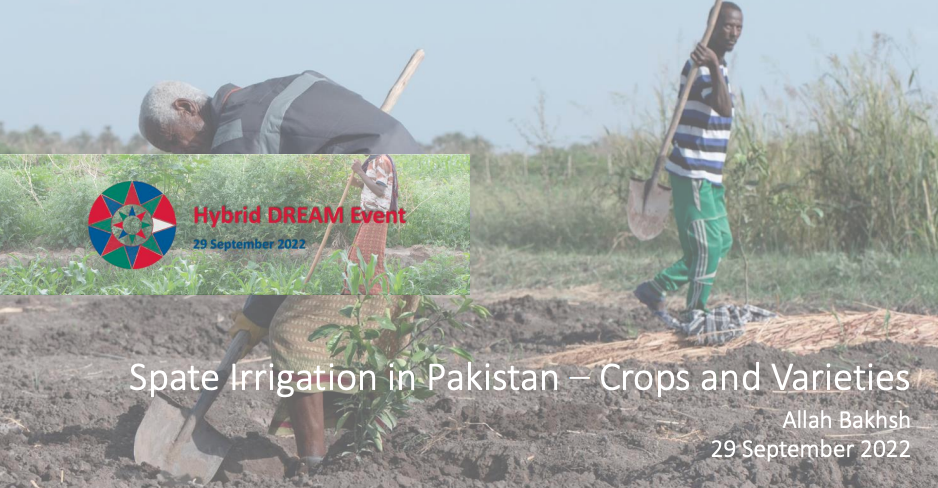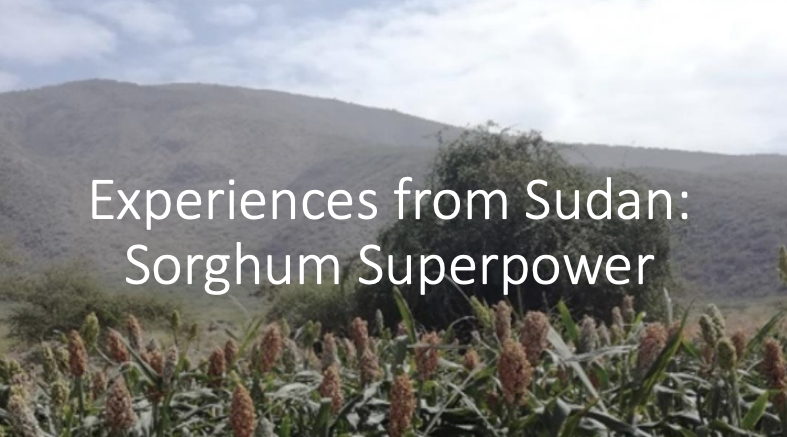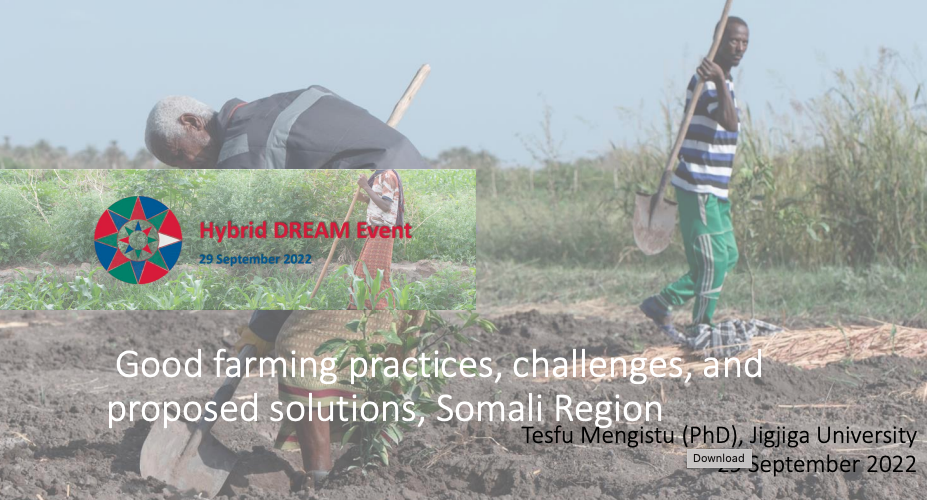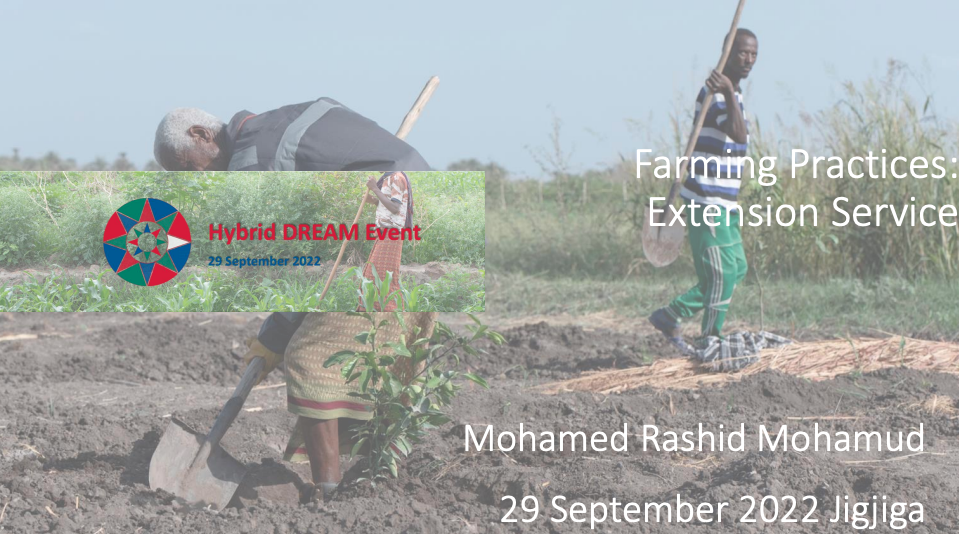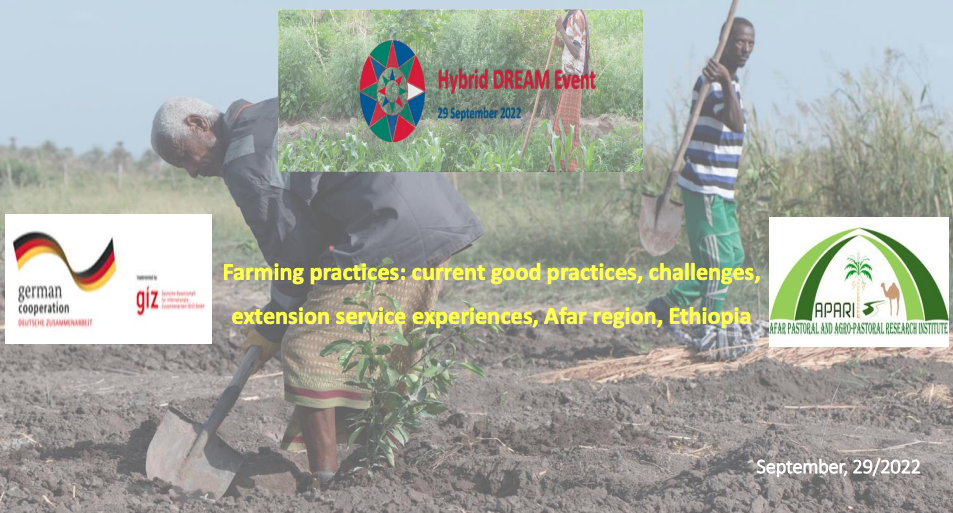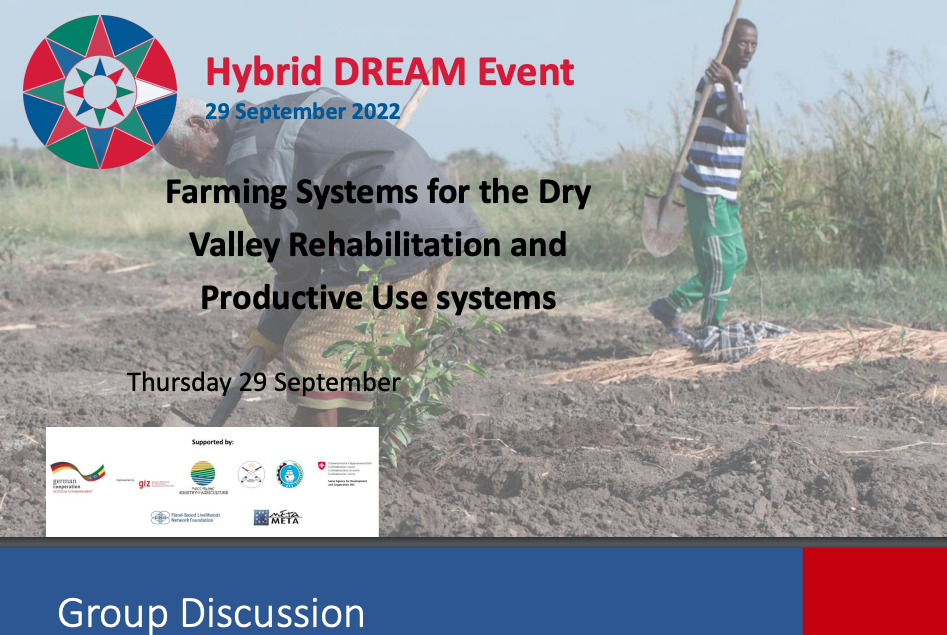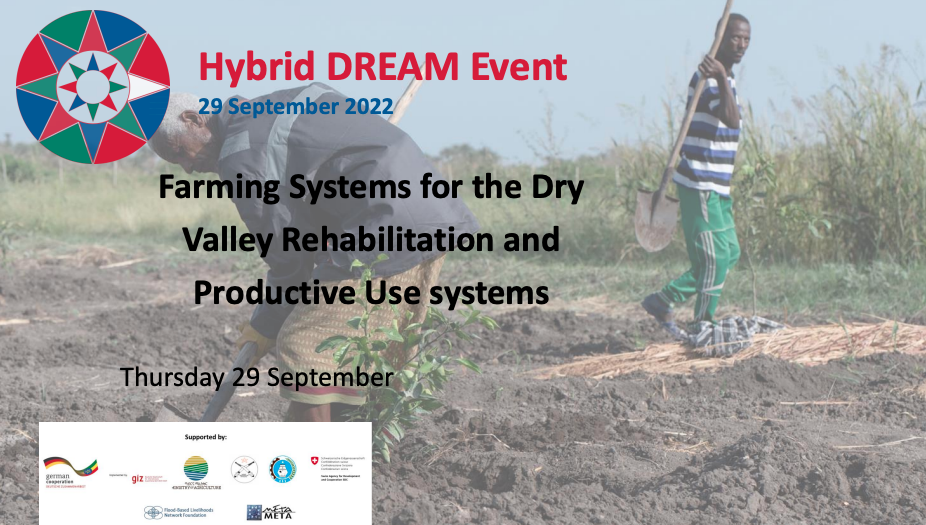The lowland development policy of Ethiopia encourages farming as alternative development practice in the lowlands of the country. Though it has been practiced for ages farming in the lowlands faces many challenges ranging from soil fertility to extreme water problems (drought in one season and flood in the other). Besides the existing severe natural resource problems community members and experts living in relatively wet areas have attitudes that hinder the upscaling of farming practices in pastoral communities. They consider agriculture as highlander practices.
Various development actors tried numerous development models and research to improve the livelihoods of pastoralists and agropastoral communities in the lowlands of Ethiopia. Ministry of Agriculture and Ministry of irrigation and lowlands in collaboration with development organizations, universities, and research institutes researched farming practices, including identifying suitable crop types, fodder production, and water management. In addition, the government of Ethiopia is declaring the success of cluster wheat farming in the country, including similar farming practices in the Somali region.
This hybrid event on 29th of September focussed on the following main topics. The current good farming practices, challenges, and proposed solutions were also be discussed.
- Suitable crop type selection based on the soil type, weather condition, and water/moisture availability
- Fodder production, introducing potential new fodder plants i.e Guar
- Flood based farming
The objectives of this hybrid event were to join efforts and discuss on how to upscale the tested good farming practices for sustainable development in the lowlands. The event will also help to share experiences among the development organizations and other stakeholders in the country and to learn successful experiences from other countries.

